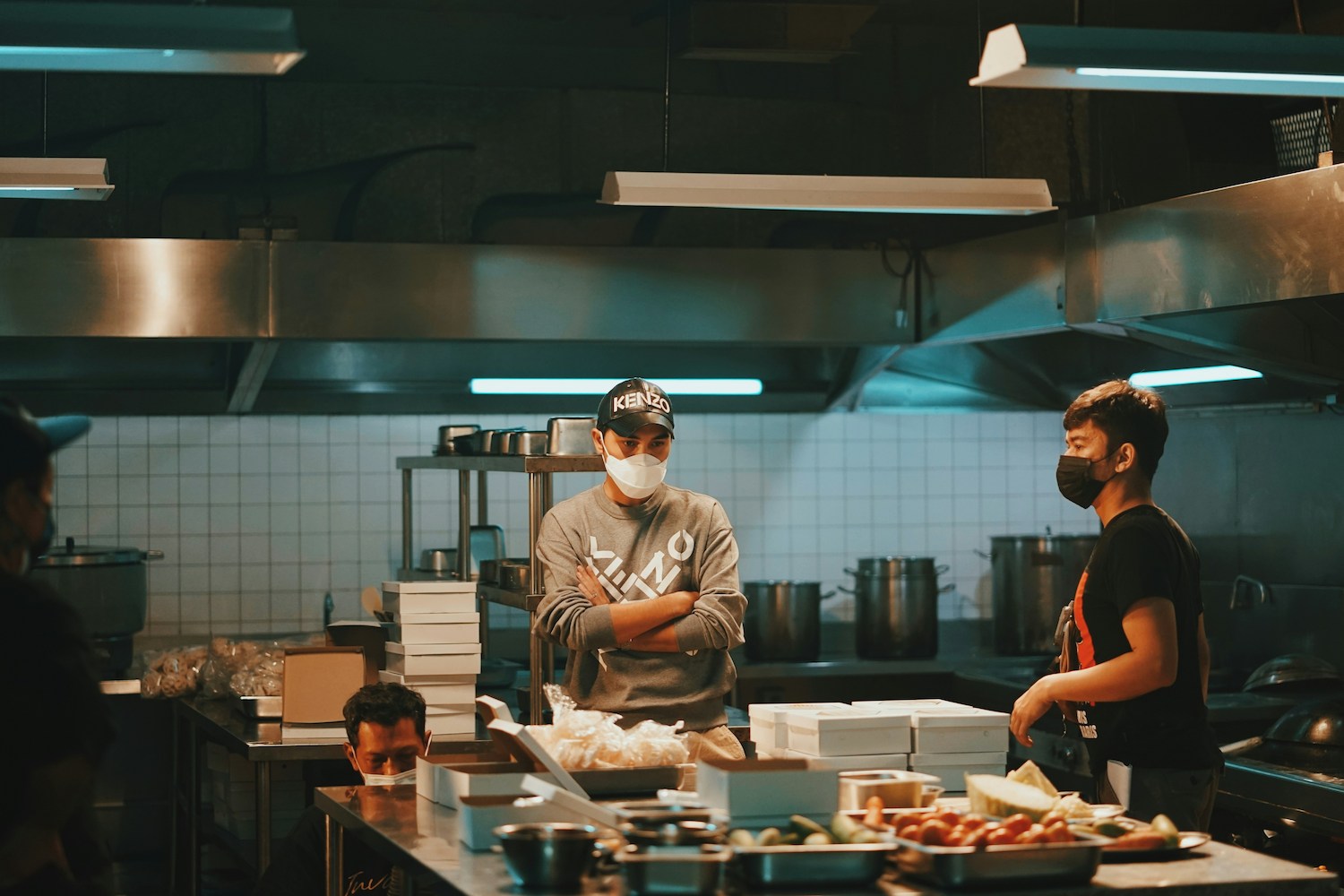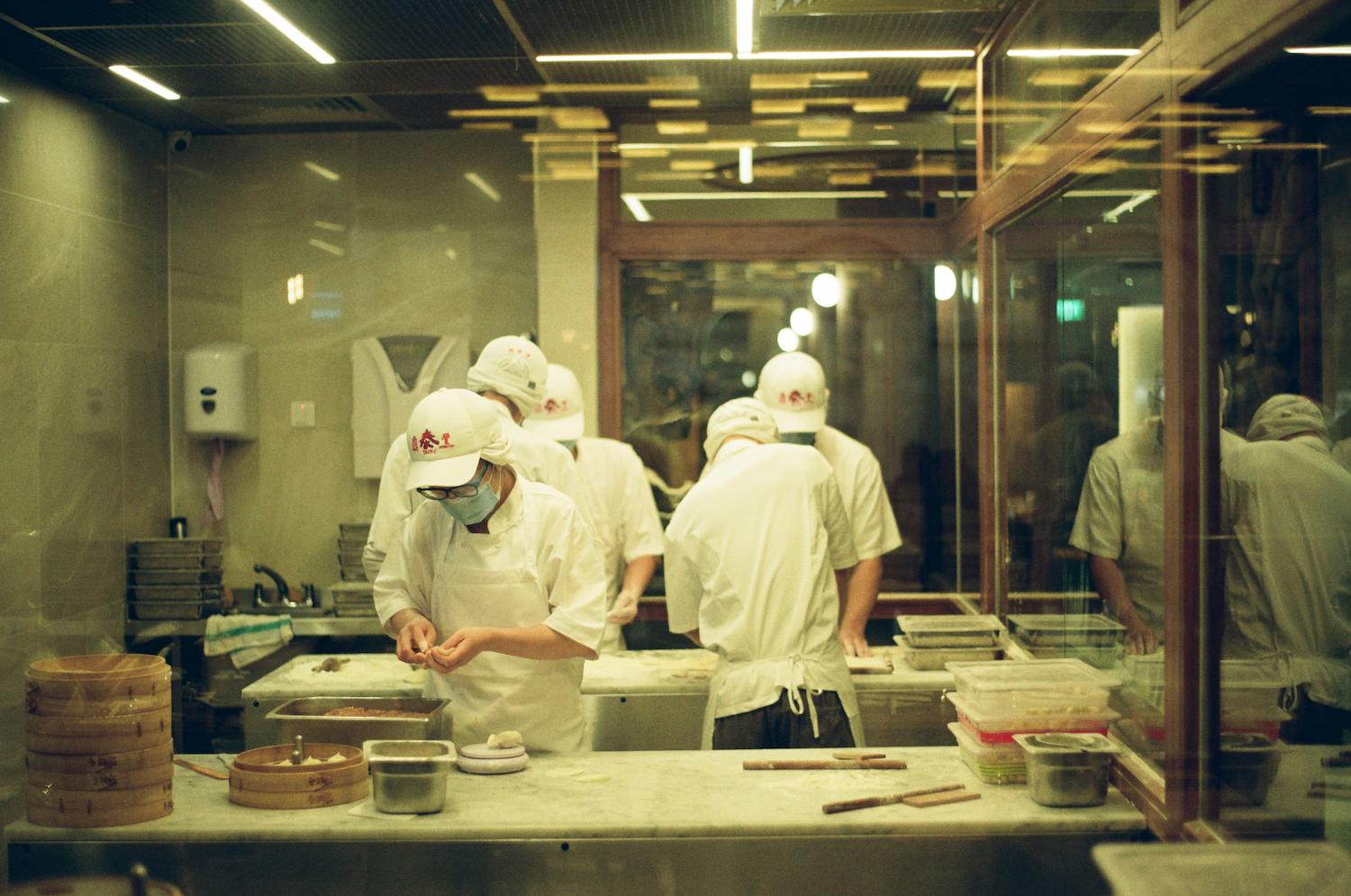The harsh realities of being an F&B worker in Singapore
F&B businesses that recently closed
It’s a tough time to be an F&B owner. Between January and October 2025, 2,431 establishments shut down, while 82% of those registered for up to five years had never made a profit, according to the Ministry of Trade and Industry (MTI). No one seems safe—not even Michelin-starred restaurants or once-popular chains, including Prive Group.
But it’s arguably an even tougher time to be an F&B worker—the cooks, servers, and dishwashers who often work long hours under difficult conditions for low wages. When closures occur, many workers lose their means of sustenance, leaving themselves and their families without a livelihood. In the case of Twelve Cupcakes, which closed abruptly on 29 October 2025, 80 workers became jobless overnight without receiving an entire month’s pay.
 The former Twelve Cupcakes workers
The former Twelve Cupcakes workers
With the Twelve Cupcakes debacle still fresh in everyone’s minds, let’s take a closer look at the harsh realities faced by workers in the F&B industry—as shared by the workers themselves. Where necessary, we’ve used aliases to protect their identities.
Twelve Cupcakes Closes All Outlets In Singapore Following Provisional Liquidation
Low wages, gruelling hours
Mei, 48, is one of the workers who lost her job at Twelve Cupcakes. A Chinese national, she had been working in Singapore to support her son, who is currently studying at a university in the United States. As you’d expect, tuition fees are high there, so Mei does her best to provide for him, enduring 12-hour shifts, six days a week, so customers can seamlessly enjoy their cupcakes.
Of the six former Twelve Cupcake employees we spoke to, all of them agreed that this was the norm. Some went further. “To hit our sales targets, we skipped meals and toilet breaks, stood for long hours, and worked past our shifts,” said Sal, a 39-year-old worker from the Philippines.
 Image credit: @_kyleahmad
Image credit: @_kyleahmad
Kyle Ahmad, 38, a local representative of the independent F&B worker collective Makan Minum Workers, added that chronic manpower shortages often cause staff to handle issues way beyond their job scope. This includes dishwashing, doing inventory, and managing part-timers. Even with these extra responsibilities, workers are seldom adequately compensated.
“I’ve been working in F&B since I was 16, and never once got a bonus,” Kyle lamented. “And even with years of experience, I only earned $3,500 as a head bartender”. By contrast, Singaporean workers from other industries could reasonably earn $5,000 to $6,000 per month by their late thirties, often with bonuses and greater job security.
Based on data from the Ministry of Manpower (MOM) Occupation Wages 2024 report, numerous F&B roles have median wages under $2,000 per month, with some going as low as $1,452. And this is just for local full-time workers—migrants and part-timers certainly earn much less.
Despite their difficult working conditions, F&B workers are paid wages that barely keep up with soaring living costs. And in some cases, they don’t even receive those wages.
Wage theft and late payments
When Myanmar’s military junta brutally seized power in 2021, Risa, 25, fled her home country to seek a better life in Singapore. But what awaited her here was a different kind of brutality: repeated wage theft by her F&B employers.
During her time at the company in question, Risa worked 12-hour shifts six days a week, serving as a barista, dishwasher, and everything in between. Yet she never once received her full salary on time. Every month, she was paid only in small amounts—$100 here, $200 there—while the rest was postponed to an indefinite date.
 Image credit: Rendy Novantino via Unsplash
Image credit: Rendy Novantino via Unsplash
“It’s not just me; my co-workers from Malaysia or India also had the same problem,” Risa noted. “And every time, the owners would say they have no money to pay us, even though they drive Teslas.”
Whether you’re a local or migrant worker, late payments seem to be an industry-wide issue. But migrants are particularly vulnerable because their right to stay in Singapore is tied to their employer—a dependency that’s often used as leverage.
“I don’t want to go home, to where the horrible military killed my friends in front of my eyes. So even though they didn’t pay me, I had no choice but to keep quiet and work. (The employers) know this, so they exploited my situation,” said Risa.
Even after leaving the job, Risa is still owed $5,000 in wages. She successfully fought for her case at the Employment Claims Tribunal (ECT), and her former employers were ordered to pay up in instalments. When the first payment date arrived, however, they defaulted again, claiming they lacked the funds.
Risa’s former company is still in operation, so she continues to pursue her dues. But what happens when a company shuts down while owing wages?
F&B workers are insufficiently protected from closures
As established earlier, F&B businesses have been shutting down at an alarming rate. This makes it all the more crucial for workers to be protected when their companies fold abruptly, as seen with Twelve Cupcakes. Yet, as that case shows, it’s clear that workers still do not have the safeguards they deserve.
 Former Twelve Cupcakes workers at a recruitment agency
Former Twelve Cupcakes workers at a recruitment agency
Left jobless overnight and without a month’s pay, many former Twelve Cupcakes workers were blindsided by the closure and scrambled to find new jobs. Rajesh, a 37-year-old from India, said about half of the 80 staff were Singaporeans or Permanent Residents (PR), while the other half held S-Pass or Work Permits. Once their passes are cancelled, S-Pass holders have up to 30 days, and Work Permit holders just seven, to find a new job or leave Singapore. They’re racing against the clock.
“It’s not just the time issue. We also need to pay for our rent, food expenses, and even transport costs to job interviews,” said Rajesh. “I also have a family of six to feed back home. The fact that this came out of nowhere—I really feel that the owners have abandoned us.”
To be fair, Singapore does have some protections for workers who face sudden closures, such as the ability to file unpaid salary claims through the Tripartite Alliance for Dispute Management (TADM) and, for citizens and PRs, limited insolvency payouts covering up to $13,000 in unpaid wages. For Twelve Cupcakes, MOM are investigating the company for labour law violations, and the Food, Drinks and Allied Workers Union (FDAWU) and TADM are assisting workers in filing claims with the liquidator to recover owed salaries.
But there are still significant gaps. For instance, the law states that employers with at least 10 employees must inform MOM within five days after a worker is retrenched. For F&B workers who live from paycheck to paycheck, the absence of guaranteed notice puts them at risk of financial instability.
 Image credit: Al Elmes via Unsplash
Image credit: Al Elmes via Unsplash
Suraendher Kumarr, a community worker from the workers’ rights group Workers Make Possible, raised three ways workers could be better protected:
- Employers should be required to buy mandatory insurance that protects workers, ensuring they receive wages in lieu of notice if they are suddenly retrenched.
- Make company directors and owners personally liable if they fail to pay their workers’ salaries.
- A statutory fund can be introduced to financially support workers during job loss or retrenchment.
“On that last point: there is the Jobseeker Support fund for Singaporeans and some PRs, but a similar fund should also be introduced for migrant workers who fuel this country,” added Kumarr.
While these measures would benefit workers across all sectors, Kumarr stressed that they are especially urgent for the F&B industry. “With so many F&B companies running losses, workers must brace themselves for turbulence in the industry. Expect more companies to liquidate,” he warned.
“Our laws must urgently adapt to support the workers who will lose their ricebowls overnight through no fault of their own.”
The former Twelve Cupcakes workers have partnered with Makan Minum Workers to raise $80,000 in emergency support for the 80 affected staff. If you wish to contribute, you can do so at the Makan Minum Workers fundraiser on Chuffed.
For another in-depth piece on the F&B industry, read our future of wet markets feature. For a story about a Gen Z ang ku kueh seller, read our AhMah’s Legacy feature.
Singapore’s Wet Markets Are Slowly Disappearing, But The Fight To Preserve Them Isn’t Over
Feature image adapted from Matthew Chia via Google Maps, Rendy Novantino via Unsplash, and @_kyleahmad

Drop us your email so you won’t miss the latest news.
